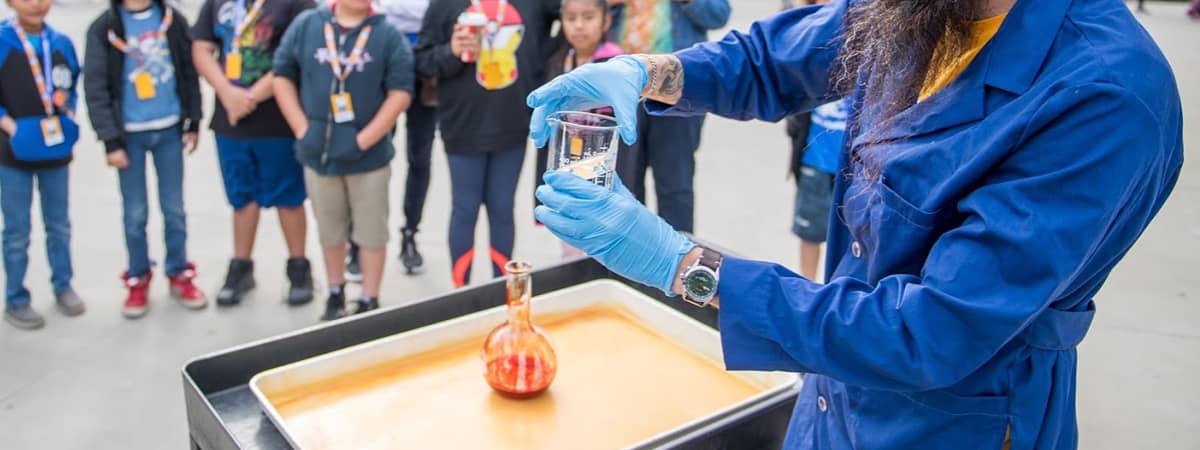Do you often look at the world around you and wish you understood it better? Are you interested in learning more about what’s in the products and environments around us, so you can help keep people safe? Well, chemists study their surroundings on a molecular level to provide the insights that help both our bodies and economies thrive.
Allan Hancock College’s chemistry program provides the necessary foundation for a career in a chemistry- related field. Chemists are essential in the manufacturing of food, household and personal care products, paints and building supplies, and more. Students in the program will learn general chemistry, how to use analytical equipment, and how to perform technical writing. They will also be introduced to specialty areas, such as organic chemistry.
Chemists are needed in many government agencies such as the Food and Drug Administration (FDA), Environmental Protection Agency (EPA), Center of Disease Control (CDC), Department of Defense (DoD), and even the Federal Bureau of Investigation (FBI).
Students can complete the associate degree in preparation to transfer to a four-year university to continue their education.
This program will help you to:
- learn proper lab skills
- properly utilize specialized glassware
- learn to properly measure pH, salinity, and temperature
- understand and perform distillation techniques (commonly used for purifying consumer products)
- properly use specialized equipment such as a Visible Spectrophotometer(UV/VIS), an Infrared Spectrometer (IR) or a Mass Spectrometer (MS)
Degrees and Certificates Offered
Each program has unique requirements. The order in which you take courses may affect your completion time. Visit the links below to view the program requirements and a general semester-by-semester course schedule.
Associate in Science for Transfer- Chemistry
To view all available degrees and certificates visit the Allan Hancock College course catalog.
Programs you may also be interested in exploring:
Contact Information
Department Chair
Wendy Hadley
805-922-6966 ext. 3841
wendy.hadley@hancockcollege.edu
Administrative Assistant
Christina McMillan
805-922-6966 ext. 3202
cmcmillan@hancockcollege.edu
Dean, Academic Affairs
Sean Abel
805-922-6966 ext. 3537
sean.abel@hancockcollege.edu
LOCATION
Santa Maria Campus
Bldg. M
Map of Building M Locations
805-922-6966 ext. 3202


